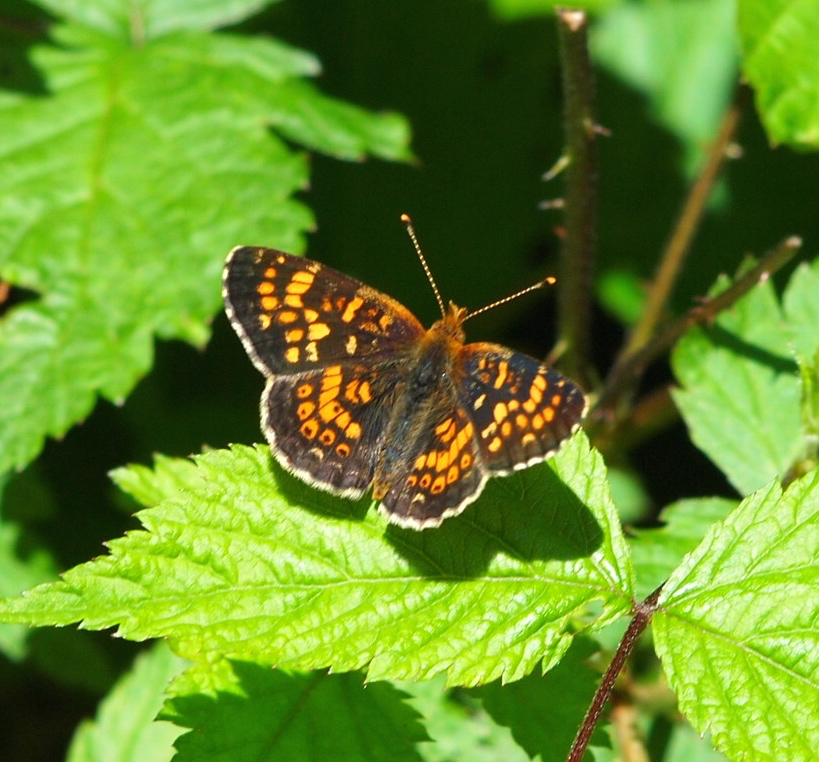 JLT Natural History kicked off its 2015 season of evening programs on January 12 with a dazzling presentation by the award-winning Washington writer and naturalist, Robert Michael Pyle. His topic, “Butterflies of the Rain Forest and Rain Shadow,” was lushly illustrated with photos and lore amassed over his decades of studying butterflies and aiding in their conservation around the world.
JLT Natural History kicked off its 2015 season of evening programs on January 12 with a dazzling presentation by the award-winning Washington writer and naturalist, Robert Michael Pyle. His topic, “Butterflies of the Rain Forest and Rain Shadow,” was lushly illustrated with photos and lore amassed over his decades of studying butterflies and aiding in their conservation around the world.
Butterflies live at the pleasure of the weather and the climate, so how particular species adapt to temperature and rainfall, and interact with their companion plants, influences which varieties people are likely to encounter on outings, Pyle notes. Bob introduced the audience to many of the butterfly characters that grace our region, both those adapted to the wet western greenwood—including beauties inhabiting areas around Jefferson County—and species that thrive east of the Cascades, where the rainfall drops off. He also discussed how the changing climate is already altering the diversity and numbers of Northwest butterflies.
 Highly acclaimed as the author of the definitive guides, Butterflies of Cascadia and the Audubon Society Field Guide to North American Butterflies, Pyle has published sixteen other nonfiction books, as well as hundreds of articles, essays, stories, poems, and scientific papers. His rich academic background in natural history, ecology, and conservation have supported his leadership in a host of conservation projects and organizations. In 1971, he founded the international Xerces Society for Invertebrate Conservation and later chaired its Monarch Butterfly Project. He also served as founding chairman of the specialist group within the International Union for the Conservation of Nature (IUCN) that focuses on Lepidoptera, the scientific order encompassing moths and butterflies. Closer to his home base in Gray’s River, Washington, Pyle work as Northwest Land Steward for The Nature Conservancy. For his expert work on butterfly ecology and conservation Pyle has earned numerous prestigious awards.
Highly acclaimed as the author of the definitive guides, Butterflies of Cascadia and the Audubon Society Field Guide to North American Butterflies, Pyle has published sixteen other nonfiction books, as well as hundreds of articles, essays, stories, poems, and scientific papers. His rich academic background in natural history, ecology, and conservation have supported his leadership in a host of conservation projects and organizations. In 1971, he founded the international Xerces Society for Invertebrate Conservation and later chaired its Monarch Butterfly Project. He also served as founding chairman of the specialist group within the International Union for the Conservation of Nature (IUCN) that focuses on Lepidoptera, the scientific order encompassing moths and butterflies. Closer to his home base in Gray’s River, Washington, Pyle work as Northwest Land Steward for The Nature Conservancy. For his expert work on butterfly ecology and conservation Pyle has earned numerous prestigious awards.
Wearing his other career cap, Pyle has lectured and taught environmental and place-based writing and field courses worldwide. In recent years he has served as a visiting professor at Utah State University and the University of Montana, and in the 1990s he was on the faculty of nature writers that criss-crossed the U.S. on “The Forgotten Language Tours”, sponsored by Orion, the literary nature magazine.
This JLT Natural History Society event took place at the Port Townsend Cotton Building on Water Street. The presentation was free and open to the public.